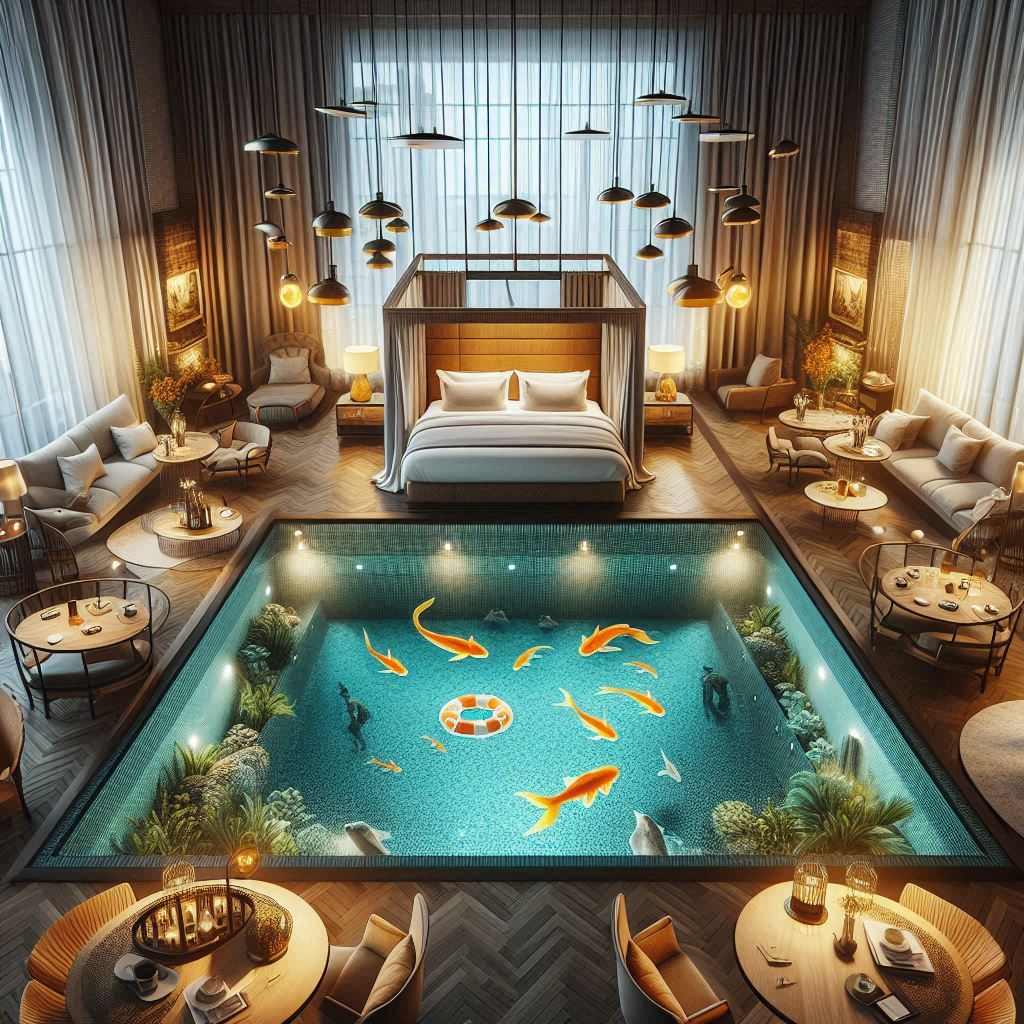Hotel hospitality is more than just providing a comfortable place to sleep; it is an art of creating a memorable experience for every guest. In the hospitality industry, the importance of top-notch service has become a key factor that determines a hotel’s success or failure. Let’s explore the main aspects that constitute the concept of hospitality and make a hotel stay unforgettable.

1. Personalized Approach
One aspect of hospitality is a personalized approach to each guest. This begins at the booking stage, where guests can specify their preferences and special requests. It is important that hotel staff not only know about their guests’ needs but also actively work to fulfill them. Modern technologies, such as Customer Relationship Management (CRM) systems, help gather and analyze guest information to create personalized offers.
2. Attention to Detail
Small details play a huge role in creating the overall impression of a hotel. Room cleanliness, quality of bed linens, fresh flowers in the lobby, and a welcome drink upon check-in all shape the hotel’s image in the eyes of guests. By paying attention to these details, hotels show their care and commitment to ensuring comfort.
3. Staff Training and Motivation
The staff is the face of the hotel. Their professionalism and attitude greatly influence how guests perceive the level of service. Regular staff training, skill development, and motivation to perform their duties well are key elements of successful hotel management. It is crucial that staff are polite, responsive, and ready to address any guest issues.
4. Creating Atmosphere
A hotel’s atmosphere should match its concept and guests’ expectations. This involves various design approaches, musical accompaniment, lighting, and scenting of spaces. Every element of the interior should emphasize the hotel’s uniqueness and create a sense of comfort and harmony.
5. Innovative Technologies
Modern technologies play a significant role in enhancing the level of hospitality. Fast and reliable Wi-Fi, automated room management systems, and mobile apps for ordering services make guests’ stays more convenient and comfortable. Innovative solutions help streamline processes and reduce wait times, positively affecting guests’ overall impressions.
6. Services and Entertainment
A variety of services and entertainment options are important for attracting and retaining guests. Gyms, swimming pools, spa salons, fine dining restaurants, organized excursions, and events allow guests to enjoy their stay and gain new experiences. Hotels should aim to fill every minute of their guests’ stay with interesting and useful activities.
7. Feedback and Improvement
Collecting and analyzing guest feedback is a crucial tool for improving service quality. Hotels should actively work with reviews, identify weak points, and take action to address them. Constantly striving for improvement and perfecting service allows hotels to maintain high levels of hospitality and guest satisfaction.
Hotel hospitality is a complex and multifaceted process requiring attention to detail, innovative solutions, and continuous improvement. Creating a unique experience for each guest is the goal modern hotels should strive for. Only then can they stand out from competitors and earn guest loyalty.
Hospitality in Different Hotel Categories
Hospitality manifests differently depending on the hotel’s category. In luxurious five-star hotels, guests’ expectations are significantly higher, and the service level must meet these expectations. Mid-range hotels focus on balancing price and service quality, while budget hotels prioritize guests’ basic needs.
Luxury Hotels
In luxury hotels, attention to detail reaches the highest level. The staff strives to anticipate guests’ desires before they are even voiced. Personalized service includes offerings like personal butlers, individual tours, and exclusive events. High levels of privacy and security, as well as exclusive amenities such as spa complexes, fitness centers, and fine dining restaurants, are essential. The interior design and atmosphere, enhanced by artworks and high-quality furnishings, are also critical aspects.
Mid-Range Hotels
Mid-range hotels offer a harmonious approach to hospitality. Providing quality service is essential. Guests are offered comfortable rooms, modern amenities like pools and gyms, as well as free Wi-Fi and breakfast. The staff in these hotels should be well-trained and ready to assist guests with any questions or issues. Cleanliness and high hygiene standards are crucial, with special attention given to family guests by offering services for children and family rooms.
Budget Hotels
Budget hotels focus on meeting guests’ basic needs with minimal expenses. Simplicity and functionality are key. Important aspects include clean rooms, comfortable beds, and essential amenities such as showers, TVs, and internet. The staff should be friendly and helpful, despite limited resources. Budget hotels should also create a homey and welcoming atmosphere, helping guests feel comfortable even on a limited budget.
Cultural Influence on Hospitality
Hotel hospitality also depends on the cultural features of the region. In different countries and even parts of the same country, the concept of hospitality can vary greatly. For instance, in Japan, a high level of service and attention to detail is part of the national culture, while in Western countries, the emphasis is on a personalized approach and creating a comfortable atmosphere.
Asian Countries
In Asian countries, hospitality often relies on principles of respect and politeness. Staff aim to anticipate guests’ needs and ensure their utmost comfort. Traditional elements, such as tea ceremonies, meditation practices, and the use of natural materials in interiors, create a unique atmosphere. The spiritual aspect of hospitality, manifested in creating harmony and balance in all aspects of guests’ stays, plays an important role.

European Countries
In Europe, hotel hospitality varies by country and region. In Mediterranean countries, the emphasis is on a warm welcome, friendliness, and creating a festive atmosphere. In northern countries like Sweden and Norway, ecological considerations and attention to nature-related details are important. In Central Europe, a high standard of service is combined with historical heritage and cultural traditions, making hotel stays unique.
American Countries
In North America, hotel hospitality is characterized by comfort and modern amenities. Attention to guests’ needs and providing a variety of services is a key aspect. In South America, hospitality is based on warm relationships, friendliness, and creating a cozy atmosphere. Traditional elements such as national cuisine and culture also play an important role in creating a unique experience for guests.
Prospects for Hospitality Development
The hospitality industry continues to evolve, responding to contemporary challenges and changing guest needs. It is important to understand that hospitality is not a static concept; it evolves with society and technological advancements. In the future, hotels are expected to increasingly use technology to improve service quality and create unique guest experiences. Virtual reality, artificial intelligence, and other innovations will unlock new opportunities for hospitality development, making hotel stays even more comfortable and memorable.
Visiting The Residences at the Hard Rock Hotel Davos you can experience firsthand the high level of hospitality that combines luxury, innovation, and attention to detail.